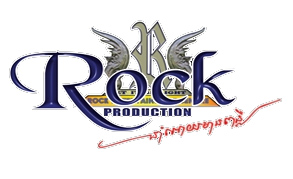Moscow has not seen political argument this heated in years. Then
again, Moscow has not seen a mayoral election in a decade. And now that
the election is two weeks away, arguments about whom to vote for — or,
more specifically, whether or not to vote for the opposition activist
Aleksei Navalny — have reached a fever pitch.
The problem with Navalny is that he is a man of his time. He was in
his early 20s and still a student when Vladimir Putin came to power in
1999, the state had already taken over television channels and the
electoral system virtually ceased to exist. In other words, Navalny has
no experience living in a functioning — even an imperfectly functioning —
democracy and no experience participating in a public political
conversation.
He is a self-taught politician, and as a result many of his positions
are poorly or primitively articulated. In campaign interviews, for
example, he has stumbled over the heated issue of L.G.B.T. rights, first
suggesting that gays and lesbians should march on a remote stadium,
where they would not risk being exposed to violence, and reversing
himself later. Most troubling have been his repeated nationalist and
xenophobic statements. In a recent interview on Echo Moskvy radio,
he promised to outlaw lezghinka, a traditional dance from the Caucasus,
if he becomes mayor of Moscow. Such statements have caused some
opposition activists, journalists and bloggers to say they cannot vote for Navalny.
Navalny will not become mayor of Moscow, of course, at least not as a
result of the coming election. The acting mayor, Sergei Sobyanin, a
member of the ruling United Russia party who enjoys a near-monopoly on
the media, will likely commandeer more than half the vote. This is part
of what makes the arguments about whether or not to vote for Navalny so
heated and so difficult to resolve: It is not clear what voting in this
election means.
This is not a fair election; the playing field is anything but level.
Nor is there much trust in the vote count: The ruling party will claim
victory no matter what. Even if Navalny won despite these handicaps, he
cannot become mayor because he has been sentenced to five years in
prison (deferred pending appeal), and by Russian law that makes him ineligible to be elected to office (unless he prevails on appeal).
If it’s not an election, then what is it? One group argues that it is
a referendum on Russia’s future, a unique chance to say “no” to Putin’s
continued rule by saying “yes” to one of his most outspoken and
best-known opponents. In this construction, anyone who does not vote for
Navalny is, in effect, voting for the Putin regime. The counterargument
to that is, there must be a difference between saying “no” to Putin and
saying that anyone who is not him is good. After all, Russia ended up
with Putin in the first place because too many people bought the idea
that anyone who wasn’t Boris Yeltsin was good.
Others say that voting for Navalny is like taking part in a protest
in support of political prisoners. Navalny was sentenced on trumped
charges, simply for being an opposition activist, and for that reason
alone he deserves support. The counterargument to that is, participating
in a political protest requires having a clear, principled political
position. And that precludes some people from voting for a nationalist.
A third group believes that the authorities made a mistake by calling
the Moscow election, underestimating its potential for destabilizing
the political situation in Russia. Rocking the boat, they believe, is
reason enough to vote for Navalny. The counterargument to that is,
political battles should be fought with precise weapons, and taking
action simply in the hope of provoking some remote, improbable
consequences is reckless.
“I agree with most of my close friends, who categorically refuse to
vote for him,” a 23-year-old Moscow sociologist wrote on her Facebook
page recently, explaining why she is supporting Navalny. “They say I am
making a big mistake, and they are probably right,” she explained,
adding: “I have never in my life voted for anyone who could have won. I
have never even voted for anyone whom I wanted to win. This is terribly
irritating, but true.”
To me, this is what Moscow’s non-election election is: a snapshot of
the Russian political landscape, a picture of what happens when you try
to have an election on scorched political earth. It is also a glimpse of
what will happen when the Putin regime does eventually end: Russia will
be run by people who grew up without politics.
Friday, September 27, 2013
Voting On Russia’s Scorched Political Earth
Posted by Unknown | at 11:56 AM
No comments
Masha Gessen is a journalist in
Moscow. Her next book, “Words Will Break Cement: The Passion of Pussy
Riot,” will be published in March.
Tags: INTERNATIONAL NEWS
 About the Author
About the Author
Write admin description here..
Get Updates
Subscribe to our e-mail newsletter to receive updates.
Share This Post
Related posts
Subscribe to:
Post Comments (Atom)
You can also receive Free Email Updates:
Counter
1058 followers
Follow us on Twitter!
260 followers
Join us on Facebook!
អាកាសធាតុ
Blogger templates. Proudly Powered by Blogger.









0 comments: